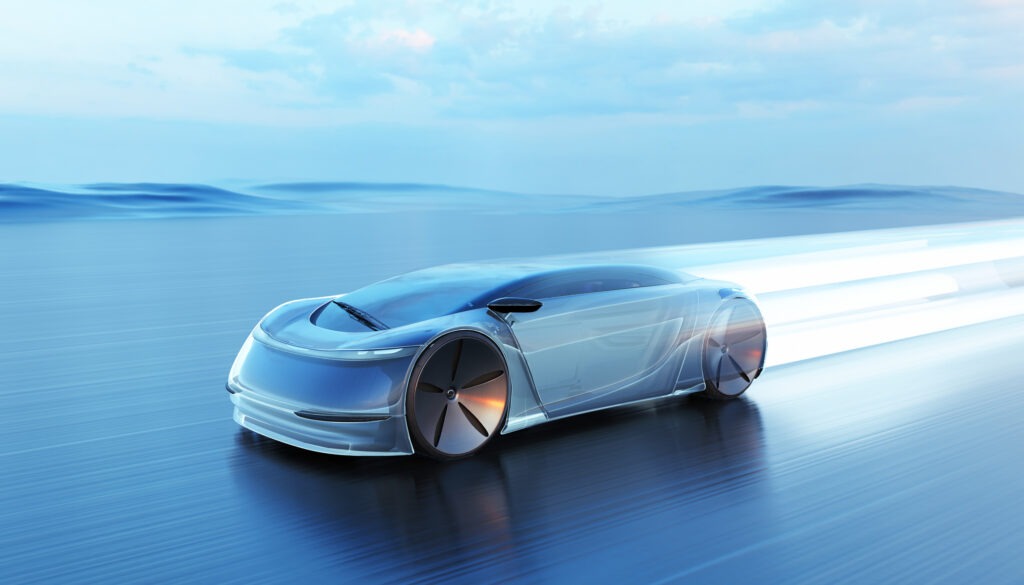Chinese models rise through the global EV ranks in November
24 January 2024

Global electric vehicle (EV) sales reached a new peak in November 2023 as Chinese carmakers enjoyed growing success. José Pontes, data director at EV-volumes.com, details the top-selling models, and OEMs.
Combined battery-electric vehicle (BEV) and plug-in vehicle (PHEV) registrations hit a new monthly record in November with 1,385,104 units delivered to customers. Plug-in models represented 18.6% of the global new-car market in the month, with BEVs alone making up 12.8%.
Registrations of all-electric models climbed 25% year on year, representing 69% of the EV market in November. This kept the BEV share of the plug-in market at 69% between January and November at 69%.
With deliveries up 40% on November 2022, PHEVs did even better, as 432,506 units took to roads around the world. This was largely the result of range-extended models hitting the Chinese market. With battery capacities over 40kWh, these PHEVs are more appealing to consumers than previous models.
No topping Tesla Model Y
The Tesla Model Y recorded 115,192 registrations in November. This represented a year-on-year gain of 13.3%, giving ground to the theory that the model is already close to its demand limits.
The BYD Song came second with 63,416 deliveries. The BEV version posted a record streak in November, delivering 115,192 units, and confirming that the Chinese brand is leaning further into all-electric models.
The Tesla Model 3 came third, backed by the ramping up of deliveries of its refreshed models. However, even with the update, the midsized sedan was just 14.5% above November 2022. This indicates that the Model 3 has reached full maturity, with significant growth rates no longer on the horizon.
The BYD Seagull led the charge for its manufacturer in fourth, with 44,603 registrations. Meanwhile, the brand’s Dolphin was fifth with 41,346 units. These two models benefitted from the low levels of competition in their respective segments.
The eighth-place Wuling Mini EV was the best-selling model outside of Tesla and BYD. However, other competitors followed closely behind, such as the ninth-place Wuling Bingo and 10th-place GAC Aion Y.
Li Auto leaps forward
In the second half of the table, several models hit record results. Starting with Li Auto, the carmaker’s L7 scored a best-ever 16,599 registrations. This put it in 13th, not far from the full-size category leader, the BYD Han (11th). The L7 faces some strong competition in the fight to lead its category in 2024.
Registrations of the Aito M7 accelerated in November, hitting a new height of 15,327 deliveries. This put the model 1,272 units below its Li Auto counterpart and 5,258 units behind the BYD Han in the full-size category.
Geely’s Panda Mini also recorded a successful month with its second best-ever result in a row. A total of 15,188 registrations allowed it to secure 16th place. The BYD Han likely lost some market momentum to its sibling, the Seal PHEV. The sedan scored 12,011 registrations in only its third month on the market, putting it in 20th.
Outside the top 20, there were plenty of talking points. Li Auto’s L9 was fewer than 100 units from joining the table, ending the month with 11,955 registrations. In the midsize category, the IM LS6 SUV drew attention with a record 8,158 registrations.
The Lynk & Co 08 PHEV has top-20 prospects as a midsize crossover with a 40kWh battery. This now looks to be the minimum battery capacity for plug-in hybrids in China. In only its fourth month on the market, the model reached 10,019 units. Meanwhile, the BMW i4 hit a new height with 9,145 registrations.
In the compact category, the MG4 took another record result with 10,506 registrations. Great Wall’s Ora Good Cat performed well too, thanks in no small part to export markets. It posted 10,796 registrations, its best-ever tally.
Meanwhile, Buick’s Velite 6 was the carmaker’s top-selling product with a record result of 8,083 units. This bodes well for the carmaker’s recently introduced Electra E5 and E4 models. Buick has elevated itself within the GM brand, and the EV arena, thanks to the success of its Chinese operations.
In the compact crossover category, the Skoda Enyaq (9,163 units) managed a record score, without joining the Chinese market. This boosted Volkswagen (VW) Group’s fortunes, alongside the Audi Q4 e-Tron posting a positive 10,377 deliveries in November.
In the city EV category, Chery’s take on the Wuling Mini EV, the QQ Ice Cream, recorded 9,219 deliveries. This was its best result in over a year.
Record performances from Chinese carmakers
In November’s brand rankings, BYD continued to perform at record levels, with 288,633 units registered. Meanwhile, Tesla delivered 174,574 units, marking a year-on-year growth of 14%.
SGMW ended the month in third, banking on the success of the Wuling Mini EV and Bingo to stay ahead of the competition, totalling 55,350 deliveries. Both fourth-place BMW and fifth-place VW had year-best results, with 50,666 units and 47,116 units, respectively.
Sixth-place Li Auto posted its eighth consecutive month of record growth, with 41,033 registrations. As the brand is still constrained by supply, it can be expected to keep beating records going forward. This will be spurred along by the release of the midsized L6 SUV and L5 sedan.
Another record performer was Geely in seventh with 39,475 units. This was thanks to great results across the board, including models like the Panda Mini and the Galaxy L7.
In eighth, Changan managed another best-ever month, with 38,990 units, thanks to the success of the Lumin and Deepal S7 SUV. Zeekr also performed well, with a record 13,124 registrations.
Premium competition
Audi scored a year-best result with 26,157 registrations. But between the premium German brands of BMW, Audi and Mercedes-Benz, the VW-Group carmaker remains in last place. BMW hit 50,666 registrations in the month.
Audi has three EVs, of which the Q4 e-Tron and Q8 e-Tron can be considered volume models. Meanwhile, BMW has twice as many volume models on offer, including the iX1, the iX3, the i4, and the iX, as well as the i3 in China. Even without a star player like the Q4, BMW’s combination of models is enough to hold the lead amongst these brands.
XPeng took 15th with its second record result in a row (20,124 units). The company saw its SUVs, the G6 and G9, shine in the month. Not far away, Aito jumped into 17th place with a new best of 18,863 registrations. Meanwhile, led by its QQ Ice Cream model, Chery posted 15,994 registrations, its best result in over a year.
In 21st, Ford was only 51 units shy of the top 20. This made it the best-selling legacy brand from the US, ahead of Buick. Despite GM’s best efforts with Chevrolet and Cadillac, Buick is its leading global brand thanks to its operations in China. Finally, Lynk & Co also achieved a record 14,647 registrations, contributing to the current rise of Geely Group.
Double the deliveries
Between January and November, the Tesla Model Y recorded almost twice the registrations of the runner-up BYD Song. The Chinese model profited from a sizable 88,417-unit advantage over the Tesla Model 3 in third, which in turn had a 60,475-unit advantage over the BYD Qin Plus in fourth.
Elsewhere in the table, the BYD Seagull climbed two positions to ninth with 212,654 registrations. The model is well positioned to ascend further. However, taking seventh will be tough, as the Wuling Mini EV (231,925 units), which jumped two positions to seventh in November, will not give up the position without a fight.
A few places below, the Wuling Bingo (139,054 units) also made progress, climbing to 13th. While not experiencing the same level of success as its competitors from BYD, such as the sixth-place Dolphin (324,300 units) and the ninth-place Seagull (212,654 units), the Bingo is a welcome addition to the EV market.
Li Auto’s L7 (113,661 units) surpassed the Denza D9 (107,979 units) to take 17th. Meanwhile, the L9 (99,464 units) surpassed the Audi Q4 e-Tron (99,261 units) to claim 20th place. However, it was a close race, with the VW-Group model less than 200 units behind, as well as the rising Geely Panda Mini in 22nd with 97,102 units.
BYD well ahead of Tesla
In the brand ranking between January and November, BYD (2,556,504 units) stayed well ahead of Tesla (1,613,465 units). Together, the pair were responsible for more than one third of the global EV market. Thanks to a year-best score in November and a below-expectations result from GAC Aion, BMW returned to third (439,868 units).
Further down the table in seventh, Mercedes-Benz faced pressure from Li Auto. The Chinese startup broke records every single month up until November. Meanwhile, Audi surpassed both Kia and Hyundai to take 13th. This also serves as a warning to the Korean brands. Besides having good EVs, large-scale production and competitive pricing are needed.
In 17th, Nio came close to surpassing Toyota. The Japanese brand also faced pressure from Ford in 18th. In 21st place with 127,245 units, Leapmotor looked set to overtake both Jeep in 19th and Peugeot in 20th.
BYD leads OEMs
Ranking OEMs with brands grouped together, BYD continued to lead the way with a 22.1% EV market share. Meanwhile, Tesla took a 13.3% share between January and November.
Third place went to VW Group (7.3% share), which looked to put distance between itself and fourth-place Geely–Volvo (6.8% share, up from 6.7%).
As for fifth-place SAIC (5.6% share, up from 5.5% in October), its recent downward trend seemed to enter reverse. That was not the case for Stellantis in sixth, which saw its share fall to 4.3%.
Seventh-place BMW Group (4.1% share) kept its position and even gained ground on eighth-place GAC (3.9% share) and ninth-place Hyundai Motor Group (3.8% share).
Looking at where the ranking was a year prior, the top two brands gained ground. BYD captured an additional 3.7% share and Tesla 0.3%. The other beneficiary was Geely–Volvo, which gained a further 0.7% share. Meanwhile, VW Group lost 0.7% of its share year on year while SAIC dropped to 5.6%.
Tesla tops BEVS
Between January and November, Tesla continued to lead the global BEV market with a 19.2% share, down from 19.3% in October.
The US OEM still has a comfortable lead over BYD (16.5%, up from 16.3%) thanks to the significant lead it built up over the first half of 2023.
In third, VW Group (7.8%) lost ground to SAIC (7.7%, up from 7.6%). In fifth, Geely–Volvo consolidated its position, taking a 6.3% share.



